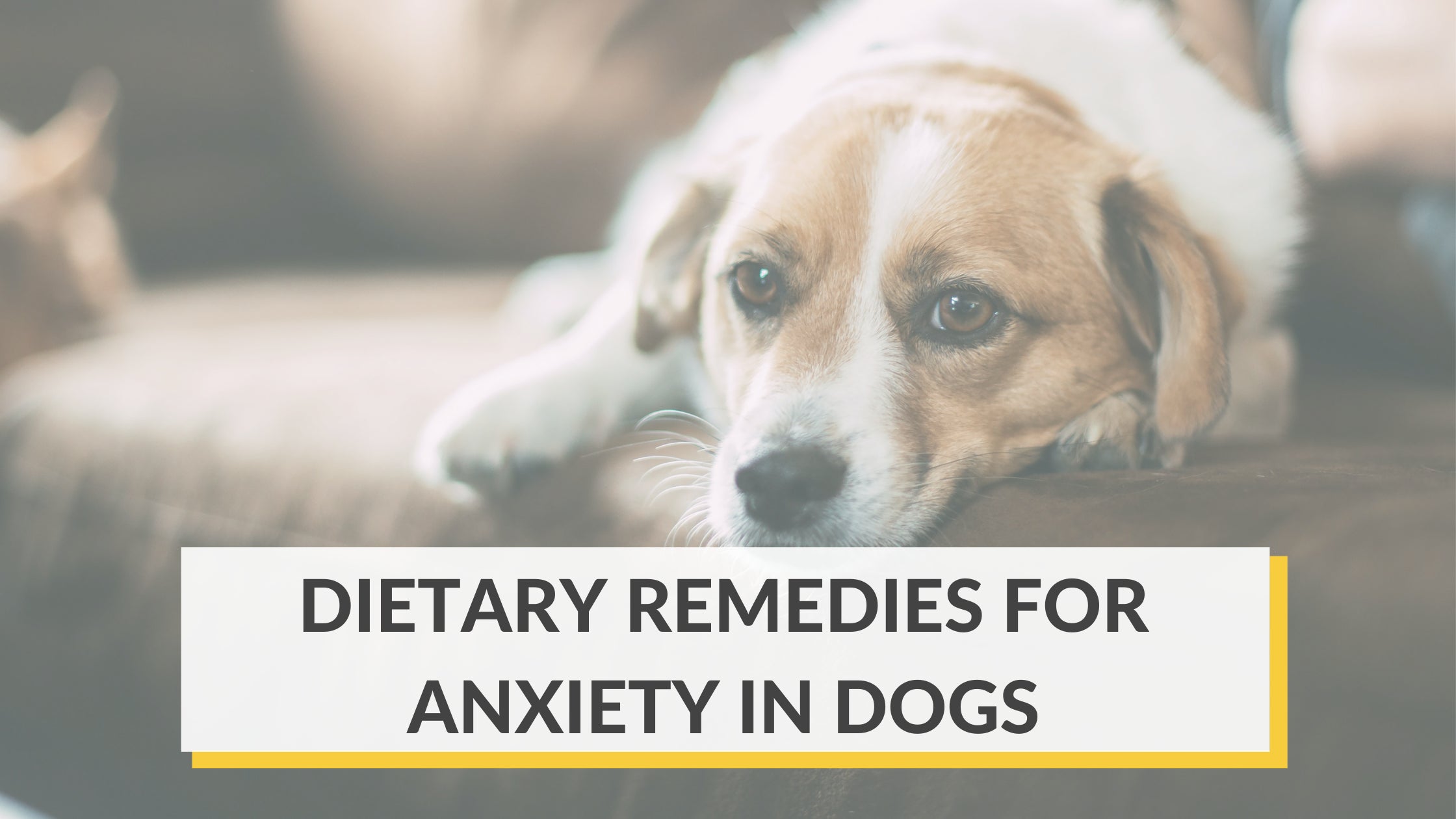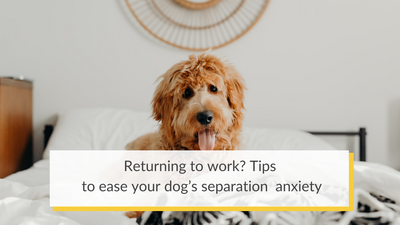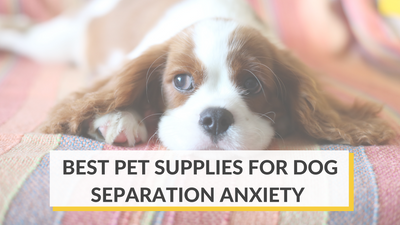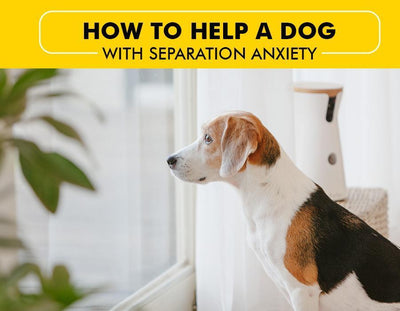Do you ever notice your dog constantly whining, digging, running around, or destroying furniture? That could be because your dog is experiencing anxiety. Just like humans, dogs too can experience anxiety from fear of abandonment, separation and aging. Sometimes the source of anxiety comes from external environmental shocks such as loud noises, strangers, and car rides. Anxiety can also be a result of canine PTSD. In Furbo’s brand awareness survey, we found that 47% of dog moms are worried that their dog might have separation anxiety when their humans are not at home. According to the American Society for the Prevention of Cruelty to Animals (ASPCA), separation anxiety is one of the most common types of anxiety in canines. This can be caused by a change of guardian, change in schedule, change in residence, or change in household membership. Dogs that were previously surrendered to a shelter experience higher levels of separation anxiety from the fear of abandonment.
Signs of Dog Anxiety
- Destructive behaviors such as chewing and digging
- Constant barking or howling when you’re not at home
- Urinating or defecating around the house
- Pacing around
- Restlessness
- Aggressiveness

Sometimes it can be difficult to determine if your dog has separation anxiety or it’s just a training issue. Before treating your dog with separation anxiety treats and medication, you want to make sure that your dog has separation anxiety. Here are some common misbehavior issues to consider:
- Juvenile Destruction: Young dogs, especially puppies, tend to chew and dig around the house as a way of exploration. If your puppy is constantly chewing on furniture and destroying household items, it can also be because they are experiencing pain from teething.
- Hunger: Dogs have a natural tendency to chew and eat. When dogs are hungry they tend to chew on other objects to find sources of food and nutrition. If your dog is hungry, they might direct their chewing towards things that they relate to their food.
- Boredom: If you don’t already know, your dog needs a lot of physical and mental stimulation daily. While you get to go out to work, friends, and family, your dog is often left alone at home with nothing to do. To cope with boredom, many dogs will explore the house on their own and start chewing or destroying items for fun.
- Health problems: Dogs can’t verbally speak to us so they try to express their needs through behavior. To get your attention, your dog might be acting out so you know that something is wrong.
Your dog can experience separation anxiety along with other behavioral issues too.
The list goes on, but for now, those are some of the most common behavioral issues your dog might experience instead of separation anxiety. Something noteworthy is that your dog can experience separation anxiety along with other behavioral issues too. If you’re unsure about why your dog is displaying signs of dog anxiety, you can always consult professional veterinarians.
Before jumping straight into medication, there are many ways you can soothe your dog’s anxiety such as more exercise, training, music, massage and more. However, it’s not always easy to take your dog to training lessons or long walks every day, especially after a difficult day at work. Fortunately, there is an alternative path you can take to treat your dog’s anxiety that is food. Most of us recognize that eating the right food can help boost our physical and mental health, this works the same in dogs. Food is the building block for our bodily function including muscles, organs, hormones, blood supply, and bone health. Additionally, eating the right food can help our body regulate neurotransmitters that affect our mental health and behavior. So what’s the ‘right’ food? Here are some ingredients that can help regulate your dog’s mood:
- Lamb and beef
- Turkey and chicken
- Whole cooked eggs
- Cooked tuna
- Uncooked oats
- Uncooked pumpkin seeds
The ingredients above all contain an essential amino acid called L-Tryptophan which increases the production of serotonin. Serotonin is commonly known as the hormone that controls our mood, emotions, feelings of excitement and happiness.
1. Reduce protein intake
From the list above, we know that most foods that generate serotonin are proteins. Since serotonin is a hormone that will hype up your dog, a reduction in the intake of protein will help calm your dog from aggression. A 1996 study done by Tufts University showed that dogs on a high protein diet are more likely to be territorially aggressive than dogs on a low protein diet. So by reducing the protein intake of your dog may bring about a calming effect that reduces anxiety.
One way to curb your dog’s anxiety is to reduce your dog’s protein intake
2. Increase vitamin A, E, and B
Similar to proteins, vitamins and minerals intake is an absolute must for both humans and dogs. Your dog needs a balanced diet where there are enough carbohydrates, protein, fats, vitamins and minerals. If your dog does not have enough vitamin A, you will first see changes in your dog’s coat, skin, and eventually muscle. Lack of vitamin A can even bring about problems such as night blindness for your dog. Vitamin E is an essential antioxidant that helps regulate your dog’s immune system. Lack of vitamin E can cause a dysfunction in cell membrane protection, cardiovascular health, neurological disorders and decreased fertility. Lastly, vitamin B12 is one of the most important vitamins that are crucial for your dog’s health. This vitamin regulates the whole nervous system as well as brain function, blood cell growth, and intestinal health. While most dogs get enough vitamin B12 from meat, fish, eggs, and dairy products, some dogs are unable to absorb this vitamin. Breeds such as border collies, beagles, and Australian shepherds are genetically predisposed to vitamin B12 deficiency. When your dog feels unwell, they are more likely to cling to the person they feel the safest with, which is their owners. To keep your dog mentally healthy and happy, pawrents must take care of your dog’s physical health.
Research has shown that omega-3 fatty acids can help dogs cope with anxiety

3. Omega-3
New research has shown that omega-3 supplementation could help calm mildly anxious dogs. Not only does omega-3 provide anti-inflammatory and anti-oxidative properties, but it can also help reduce cognitive decline. The omega-3 fatty acid is usually recommended to help senior dogs with physical and mental deterioration, but research has shown how omega-3 fatty acids can help dogs cope with anxiety from both the behavioral and physiological standpoint. Since omega-3 fatty acids regulate so much of our neurotransmitters, low levels of omega-3 fatty acids in the brain can result in signal disruption, which would lead to confusion and behavioral issues in your dog. Other benefits of omega-3 include cardiovascular health, shinier coat, reduce skin inflammation, relieve joint pain, and strengthen immune system. You can easily include omega-3 into your pup’s diet with some cod or salmon treats.
4. Herbs
Okay..herbs are not exactly a dietary item your dog can consume daily, but it’s something you can add to your dog’s diet to soothe anxiety. Chamomile is a natural herb that can calm nerves and stress in your pup. You can either mix the dry herb directly into wet food or seep it into their water so your dog can have some ‘tea’ too. Chamomile also has other amazing properties that can help relieve indigestion. The herb not only works to soothe nerves, but also the muscle lining of the digestive tract. Additionally, chamomile can help strengthen hair, skin, and cleanse the liver for your pup. While chamomile can work as natural anxiety relief, some dogs may experience allergies to this herb. You should only give chamomile to your dog in small quantities at first and consult your veterinarian if any problem arises.

Valerian root is another natural herb that works wonders in dog anxiety. The herb is usually used as a sedative that helps calm anxious dogs. You can get valerian root in the form of tablets, capsules, tinctures and even dried and fresh root. This herb is also used in many oils and edible chew toys to soothe anxious dogs. Although valerian root has many benefits, it also comes with a few side effects such as drowsiness, low body temperature, and lethargy because of its sedative effect. Always consult your veterinarian before administering valerian root to your pup because the dosage may vary depending on your dog’s breed, size, age, and anxiety level.
*Never give valerian root to puppies, senior dogs, dogs with underlying health issues, pregnant dogs, and lactating dogs*
Other Supplements
In addition to all the dietary treats for anxiety, here is a list of ingredients and supplements that might also help with your dog’s health and anxiety.
- CBD
- Melatonin
- L-theanine
- L-tryptophan
- S-Adenosylmethionine (SAMe)
Now you know all about dog anxiety and ways to treat it by changing up your dog’s diet, you will be better equipped to keep your dog healthy and happy. However, we recommend that you take a holistic approach to soothe your dog’s anxiety instead of just focusing on your dog’s diet. Food is just part of the solution to your dog’s anxiety. To tackle the root of the problem, you might need to combine multiple forms of treatment including prescribed medication, behavioral training, and nutritional supplements to see optimal results. If you’re still unsure what you should do to help alleviate your dog's anxiety, talk to a professional pet trainer or veterinarian!












